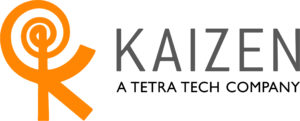
Kaizen improved Palestinian public administration and civil service through capacity building and institutionalization of government transformation processes.
Palestinians have faced challenges related to the lack of professional and competent public administration and civil service staff. USAID’s Program Assistance for Capacity-building and Effectiveness (PACE) project, implemented by Kaizen, aimed to support the Palestinian Authority in developing a more efficient and professional public administration and civil service. Kaizen played a critical role in institutionalizing government transformation processes by providing the necessary tools to Palestinian Authority counterparts to drive reforms within their institutions. The Organizational Self-assessment and Transformation Program (OSTP), based on the human and institutional capacity development (HICD) approach, was one of the key tools used by Kaizen.
Highlights
- Implemented more than 60 business process-related reforms
- Established a Palestinian Authority-led coordinating committee
- Supported ministries in documenting and producing guides for citizen services
The flagship service of OSTP focused on strengthening the core functions of key ministries and the public sector at organizational, workgroup, and individual levels. Kaizen assisted mid- to senior-level Palestinian officials in identifying performance gaps and causes and designing and implementing solutions. The approach created metrics to measure progress and improve the institutions’ overall performance. Kaizen also facilitated an in-person communities of practice, where ministry reformers came together to share experiences, best practices, and identify problems and potential solutions. The program had a significant impact on the representation of women in leadership positions in the Palestinian Authority, recognizing and rewarding high-performing female staff on merit rather than personal connections.
At the project’s end, Kaizen ensured the sustainability by transitioning it to a second cycle, where internal ministry teams drove the HICD process. Kaizen also assured the program’s foundational sustainability at the national level by establishing a steering committee of top civil-servant reformers and the necessary institutions and budgets within partner ministries. Overall, the program implemented more than 60 business process-related reforms, empowering Palestinian officials to drive reforms internally and improve public services.
At a glance
Client
Status
Past
Location
West Bank
Services
Organizational development, governance
